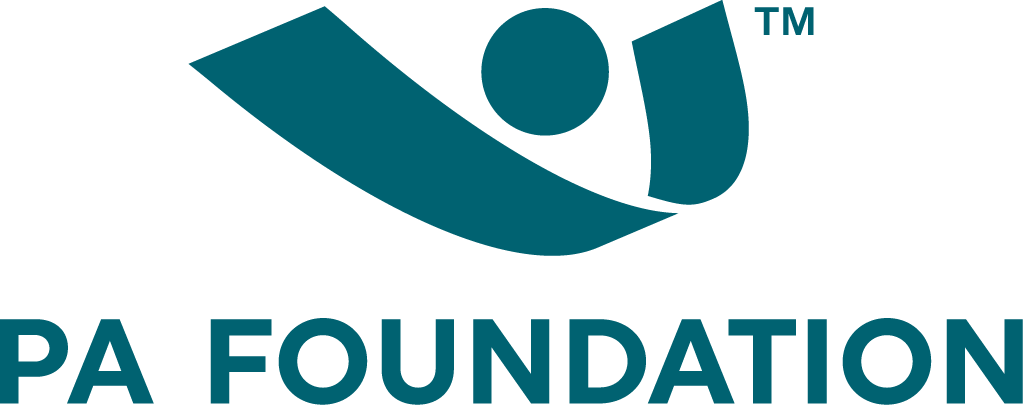Global Outreach Grants
Launched in 2005, the PA Foundation’s Global Outreach Grants Program provides grants to support projects involving PAs and PA students in humanitarian activities designed to improve the quality of life in underserved areas outside the United States or its territories. The grants promote sustainable development in the areas of healthcare and health education for populations and communities in need.
We provide funding for projects that enhance or expand existing programs and provide the participating PAs and students an invaluable learning experience in healthcare delivery, leadership, and project management.
2025 Application Cycle*
Opens: February 3
Closes: March 3
View the 2025 qualifications and requirements document.
*Dates pending/subject to change.
- All grant applications must be submitted by one or more PAs or PA students who are members in good standing of AAPA and who are involved in health-related humanitarian efforts through either established humanitarian organizations or PA programs.
- Applications must be made in conjunction with a nonprofit sponsoring organization, such as a nonprofit hospital or nonprofit community organization, accredited PA Program, AAPA Constituent Organization, or nonprofit humanitarian organization.
- Grant funds are disbursed to the nonprofit organization or program sponsoring the project.
- Through this program, the PA Foundation seeks to support projects conducted outside the United States or its territories.
- In the evaluation process, preference will be given to those applicants who have not already been awarded a grant from the PA Foundation within the preceding 12 months (including both IMPACT Grants and Global Outreach Grants).
- The PA Foundation will award a maximum of one grant per institution per funding cycle.
- The purpose of the humanitarian assistance grant is to directly support the individual or individuals while preparing for and/or while involved in the humanitarian effort.
- Acceptable expenses may include costs incurred in preparing for travel to the activity site, such as immunizations, exams, and medications; living expenses while serving at the site; and equipment and supplies needed for the activity.
- Funds also may be used to purchase materials and equipment that support a specific project that meets the objectives of this grant program.
- Funds may not be used to cover any indirect/administrative costs (including salaries/stipends), capital expenses, or travel expenses/airfare to the site of the activity.
An online application packet must be submitted, including the following components:
- A completed and signed online application form (access via Formsite).
- A detailed budget indicating the expenses for which the grant funds will be used.
- If the request is for humanitarian assistance in a developing country, include evidence of support for the project by the host country, such as an affiliation agreement, memorandum of understanding, contract, letter from a government official, or letter(s) from nongovernmental organization(s) involved in the activity.
- If the request is for an activity within the United States, include a letter from the humanitarian organization with which you will be working. This letter should outline what contributions you will be making to the established program, length of service, and brief background information on the organization.
- Written proposal addressing the following items/questions (no more than 8 pages total):
- What community or country is involved in the program or project? Describe the target population of the project.
- Describe the need for the program or project (e.g., local or national health indicators that demonstrate need).
- Briefly summarize the program or project.
- What are the goals/milestones of the program or project?
- How will the project improve health and quality of life in an underserved area?
- How will the project promote sustainable development in the areas of healthcare and health education?
- Is this an existing program? If so, how long has it been in operation, and does it involve collaboration with other organizations? What infrastructure is in place—or will be in place—to support the project?
- Is any portion of the project funded by another source, and/or is this project part of a larger funding proposal? Will there be other types of support for the project (in-kind, matching funds, etc.)? (Note: Demonstration of available additional support will be factored into the evaluation/scoring process.)
- What role will PA(s) and/or PA students play in the program? Indicate how PA value and/or PA utilization is critical in attaining the project objectives.
- Include a timeline for the project.
- Describe the evaluation strategies to be utilized in measuring the success of the program or project. What points of data will be collected to demonstrate impact, if any?
- Briefly summarize how Global Outreach Grant/Robert K. Pedersen Global Outreach Grant funding will improve or enhance population health of the community.
- How will outcomes/results be disseminated (e.g., poster, presentation, publication, etc.)?
- Is the project’s impact sustainable? Please explain.
The following factors will be incorporated in evaluation/selection of grantees, among others:
- Demonstrated need for the humanitarian activity
- Demonstrated support by an established humanitarian organization or other partnering nonprofit organization
- Measurability of results/outcomes, described in a project evaluation plan
- Effectiveness and sustainability of the activity. Ideally, the program or organization involved should have existed for at least two years. For a new initiative, an expanded discussion of the program or activity, focusing on the goals and the proposed evaluation methods, should be provided.
The 2025 Global Outreach Grant/Robert K. Pedersen Global Outreach Grant cycle will open February 3 and close March 3.
- The Robert K. Pedersen Global Outreach Endowment — A major funding source, this endowment was established in 2005 through a generous donation made by Don and Kathy Pedersen’s Family Foundation in memory of Don’s father, who worked internationally throughout his career. The Pedersens have been PAs for more than 30 years — Don as a professor and director of the University of Utah PA Program, and Kathy as a primary care PA at the Community Health Centers of Salt Lake City.
- Chevron and other corporate partners
- Individual donors
Questions? Contact Caroline Pierce.

